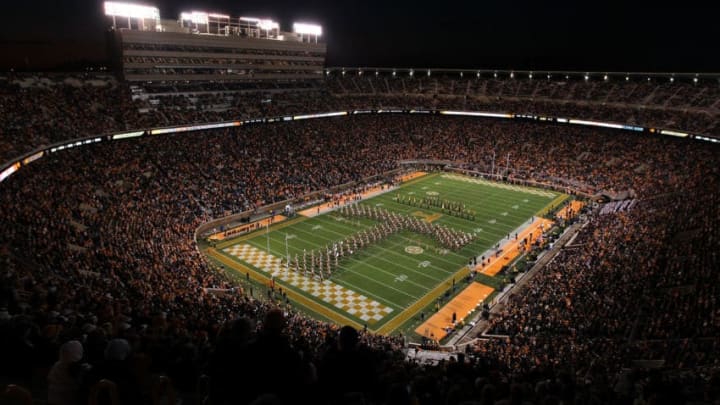
1. 1980: Bill Pace
Yes, we go way back for this one. And ironically, it’s a bit disturbing considering Jim Chaney being hired. Jeremy Pruitt hired Chaney away from the Georgia Bulldogs, which are a rising program under Kirby Smart.
More from All for Tennessee
- How to Win a GUARANTEED $200 Bonus Betting Just $5 on the Vols vs. Florida!
- Tennessee Football at Florida: Five Keys to a Vols Victory
- Week 3 SEC Power Rankings: Did Tennessee Football’s Win Help At All?
- Week 3 AP Polls: Why Did Tennessee Football Drop in the Polls?
- Tennessee Football: Top Five Performers in 30-13 Win vs. Austin Peay
In 1980, after finally getting a winning season his third year on the job, Johnny Majors hired Bill Pace way from Georgia, which was a rising program under Vince Dooley in the 1970s. The next year, Georgia won the national championship while Tennessee football stumbled to a 5-6 season, Majors’s third non-winning season in four years and second losing season.
Pace, who passed away back in 1990, was an experienced coach who had spent time as an assistant with UGA, the Kansas Jayhawks and the New England Patriots at different times in his career. Most notably, though, he was an assistant for Frank Broyles and the Arkansas Razorbacks in the 1960s, helping to deliver two SEC Championships and a national championship.
On top of that, he gained experience as a head coach with the Vanderbilt Commodores, serving in that role for six years from 1967 to 1972 while also working as athletic director before resigning and heading to Georgia as an assistant. Simply put, Pace was a great hire on paper.
But he abandoned the vertical passing game Majors was trying to install. And it didn’t work out. The Vols went from averaging over 360 yards and 25 points a game in 1979 to averaging under 300 yards and just over 23 points the next year.
In 1981, they even regressed, averaging just over 20 points a game while still averaging under 300 yards. Tennessee football had more success that year thanks to its defense, as they had their first eight-win season and won their first bowl game under Majors. But the hire of Pace didn’t work out.
Pace was a good coach. Majors just needed to stay more committed to his pro-style offense. He did just that with his next OC hire in Walt Harris, who came in 1983. From Harris to Phillip Fulmer to David Cutcliffe, the offenses got progressively better under the pro-style until they exploded in the mid-1990s, creating the most successful period in the modern era of Tennessee football history. But this move in the early 1980s did not work out.
